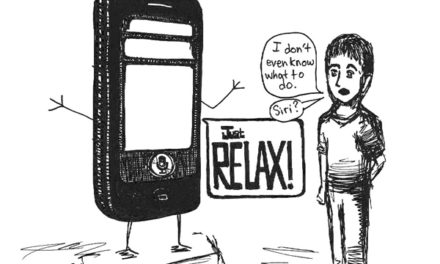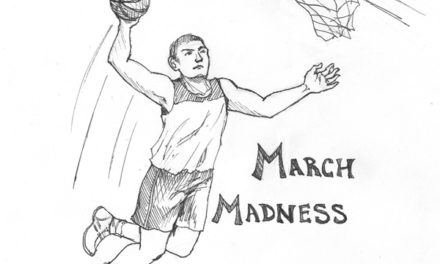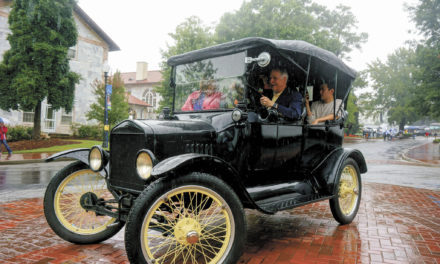I have recently joined the ranks of the countless Emory students and faculty possessing one less bicycle. As unfortunate and deplorable is my position, I was able, after some reflection, to gain some insight into my – and others’ – situation.
Oft’s the time I spy, dejected and abandoned on the bike racks, a lone wheel still chained to the rack. I hear stories of bicycles securely locked falling prey to the knavery of thieves armed with chain cutters. As the tears marred my vision I promised to myself and to my bicycle never to be found in that luckless position; inwardly, I also scoffed at the owners irresponsible enough to leave their glistening velocipedes defenseless in such a cruel and merciless world as this.
I had several very good reasons to believe that my bike was safe against any attempts at its removal. Anyone who had seen my bike would know the first: I paid $50 for it at Goodwill, and this was evident in the abundance of rust, grit and grime that coated its surface. But, in its defense, it did have Shimano gears, which I’ve always been told are the best. Second reason: my bike (God rest its soul) was missing a limb. Yes, its right pedal was hideously mangled in an accident, and consequently amputated. Third Reason: I usually chained my bike to the garbage can: I figured if nothing else, the stench and stigma associated with the area would be an adequate deterrent. Soon, however, I grew cocky, and stopped chaining my bike altogether. Then, around 9 a.m. Sunday morning, the 30th of September, my cripple of a bike was abducted.
As I promised, there is a moral to the story. I learned several things that fateful autumn day:
First and foremost, this bike-stealing business is quite organized. I doubt Emory students have much to do with it. To begin with, most are absurdly wealthy. They also simply don’t have the time to embrace a life of crime, their minds being so zealously consumed by their work and passions. The staff could always be behind this, but I find it quite preposterous that the amiable lunch lady could so spitefully swipe my bike behind my back after already blatantly swiping my meal card in my very presence.
No. I am convinced that this is something much larger. Much, much larger.
If you remember, my bike had Shimano gears. This, I’d estimate, was half its value. The only reason someone might want such a bike as mine is for those gears. What would they do with those gears? The bike is scrap. Even I disliked it. But the gears they could salvage. Think also about those random half-bikes still chained to the bike racks. Someone stole half a bike? It would make sense to steal everything but the front wheel (as indeed, many apparently have), even if unicycles aren’t your thing, so that strikes me as peculiar. What is going on? It’s actually quite simple. Although my first instinct is to accuse Emory’s gnome population, I realize my learned Emory readers would be unsatisfied with so obvious and simple of an answer and are casting about for a more convoluted conspiracy. Hence, I shall present the runner-up theory.
Emory is in Atlanta. Atlanta has crime. Whoever is stealing these bikes obviously has some kind of mechanical expertise, and is specifically targeting bikes, or else why should he bring chain cutters? Emory is a strong advocate of biking, even offering rewards to employees who cycle, yet it negligently lets their bikes be stolen to Emory’s own disadvantage as well as the bike’s owners’. It’s high time to increase security, start offering rewards for theft prevention, and perhaps rethink the idea of traditional communal bike racks, so that we can actually breed a sense of security and confidence to those of us who bike. But alas for my bicycle, it is already too late.
Jonathan Warkentine is a College freshman from Almaty, Kazakhstan.
The Emory Wheel was founded in 1919 and is currently the only independent, student-run newspaper of Emory University. The Wheel publishes weekly on Wednesdays during the academic year, except during University holidays and scheduled publication intermissions.
The Wheel is financially and editorially independent from the University. All of its content is generated by the Wheel’s more than 100 student staff members and contributing writers, and its printing costs are covered by profits from self-generated advertising sales.






You think Emory students wouldn’t steal something because most are absurdly wealthy?
How do you think the rich attain such wealth???